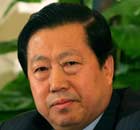Afghan policeman kills 6 US service members
Updated: 2010-11-30 06:44
(Agencies)
KABUL, Afghanistan- An Afghan border policeman killed six American servicemen during a training mission Monday, underscoring one of the risks in a US-led program to educate enough recruits to turn over the lead for security to Afghan forces by 2014.
| ||||
Attacks on NATO troops by Afghan policemen or soldiers, although still rare, have increased as the coalition has accelerated the program. Other problems with the rapidly growing security forces include drug use, widespread illiteracy and high rates of attrition.
A spokesman for the Afghan Interior Ministry, Zemeri Bashary, confirmed that the gunman in Monday's attack was a border police officer rather than an insurgent who donned the uniform for a day.
The Taliban claimed responsibility, saying the gunman joined the border police to kill foreign soldiers.
"Today he found this opportunity and he killed six invaders," Taliban spokesman Zabiullah Mujahid said in a statement e-mailed to the media.
The shooter opened fire on the NATO troops and then was killed in the shootout, NATO said, without providing additional details.
Col. Dave Lapan, a Pentagon spokesman, confirmed that the six killed were American. He declined to provide their identities or say which military branch they were from until next of kin could be notified.
Bashary said the incident happened in the Pachir Wagam district of Nangarhar province, a volatile area near Pakistan.
An investigation team has been sent to Pachir Wagam, said Gen. Aminullah Amerkhail, the regional border police commander for the east. But he said information was not coming back quickly.
"The area is very remote," he said. "Even the telephones are not working there."
NATO is still investigating an incident earlier this month in which two US Marines were killed in southern Helmand province, allegedly at the hands of an Afghan soldier.
After two deadly shootings in July, NATO officers said they were re-examining training practices to make sure that such attacks did not happen again.
On July 20, an Afghan army sergeant got into an argument at a shooting range in northern Afghanistan and shot dead two American civilian trainers before being killed. Another Afghan soldier was killed in the crossfire.
A week earlier, an Afghan soldier stationed in the south killed three British troopers, including the company commander, with gunfire and a rocket-propelled grenade in the middle of the night.
In November 2009, an Afghan policeman killed five British soldiers at a checkpoint in Helmand.
On September 29, 2008, an Afghan police officer opened fire at a police station in eastern Paktia province, killing a US soldier and wounding three before he was fatally shot. A NATO official expressed shock at the time that an Afghan officer would betray his NATO partners.
At the time, Col. John "Pete" Johnson, a US forces commander in eastern Afghanistan, predicted it would be "the first incident of its kind."
The recent increase in such shootings suggests that the Afghan security forces may be suffering from growing pains. In the past year, the size of the Afghan police force grew 27 percent from about 95,000 officers to 120,500. The army increased 42 percent from 97,000 soldiers to about 138,200.
There have been also been problems with retention, and even those who stay often are lacking the most basic skills.
Only 11 percent of enlisted personnel and 35 percent of noncommissioned officers in Afghanistan's army and police are literate, according to NATO trainers. And before NATO took over the training mission for the security forces, many Afghan police recruits were issued uniforms and guns and sent out to postings without any sort of training in weapons or law enforcement.
Drug use is also common among the police, though NATO trainers say they are doing a better job of screening for drugs and kicking out addicts. Those testing positive for heroine or other hard drugs are immediately discharged, while those testing positive for marijuana use are put on probation while they kick the habit.
Paper's Digest

China bags Asiad team tennis title after 24 yrs
Wimbledon semifinalist Li Na led host China to capture the team tennis title on Tuesday at the Asian Games, accomplishing her Asiad tour with three consecutive victories.
China rate rises no panacea to curb inflation: PBOC adviser
Specials

Safeguarding environment a priority
China continues to face mounting pressure to curb environmental degradation, despite progress in reducing pollution over the last five years, the environmental protection minister warned.

Employment to remain a continuing challenge
China's top labor official said the country will face a tough employment situation in the next five years.

Airshow China 2010
China is in talks about selling the FC-1 fighter jet to eight countries, Flightglobal.com reported Wednesday.




